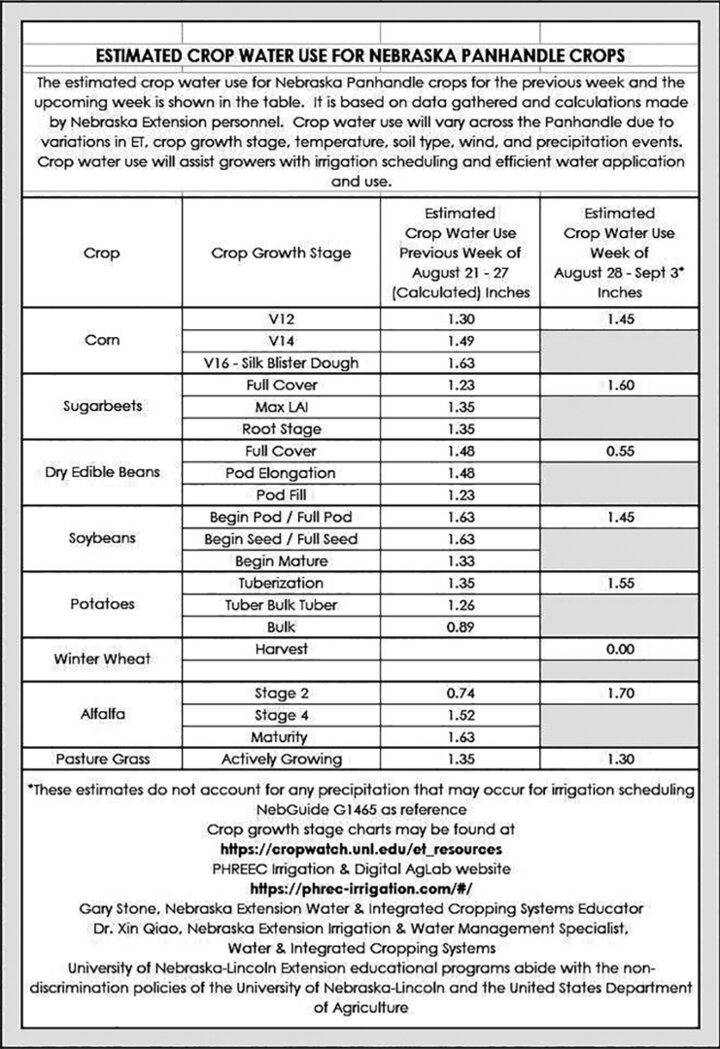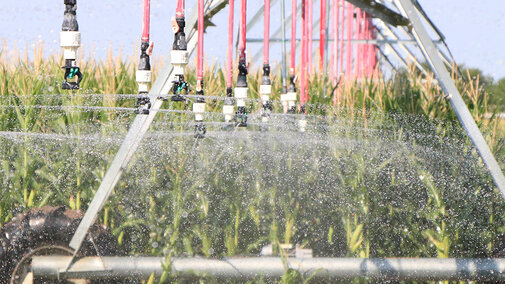Fall is only a few weeks off, along with harvest and the end of the irrigation season for farmers. The crops are beginning to wind down, with dry edible beans filling their pods and alfalfa coming into its third cutting.
“Our irrigation season went really well, and we’ll be shutting down on Sept. 20 this year,” said Rick Miller, general manager at Pathfinder Irrigation District.
The demand for most irrigation districts in the Panhandle was slow as summer began. According to the National Weather Service in Cheyenne, Wyoming, in the Scottsbluff and Sidney areas, precipitation for May and June was almost double or double the amount typically received. The rains were also good for recharging the soil’s moisture profile.
“Think of soil like a bucket. If we had eight inches of rain in May and the bucket holds six inches, then two inches will percolate down deeper than the roots can use,” said Xin Qiao, Nebraska Extension irrigation and water management specialist. He added it would also depend on the soil's ability to hold the rain and not let it run off.
The inability of the soil to hold an excess of rain on June 23 caused damage to the Interstate Canal north of Highway 71, when more than four inches of rain fell in a very short time during a storm. Irrigation deliveries were delayed for several days while the damage was repaired.
The added rains this spring and summer have seen many of the lakes fed by the irrigation districts stay fuller — a promising sign for recreationists and next year’s irrigation season.
“If we get decent snowfall, we’ve had a good year and will have good carryover,” Miller said.
For growers keeping an eye on their crop water use, the estimated crop water use for Nebraska Panhandle crops for the previous week and the upcoming week is shown in this table. It is based on data gathered and calculations made by Gary Stone, Nebraska Extension educator, and Dr. Xin Qiao, Extension Irrigation and Water Management Specialist, both based at the UNL Panhandle Research and Extension Center in Scottsbluff.
For more crop water use information across Nebraska, see the new CropWatch GDD/ET tool.
Crop water use will vary across the Panhandle due to variations in ET, crop growth stage, temperature, soil type, wind and precipitation events.
To receive the weekly crop water use report via text message, subscribe on the PHREC AgLab site.


